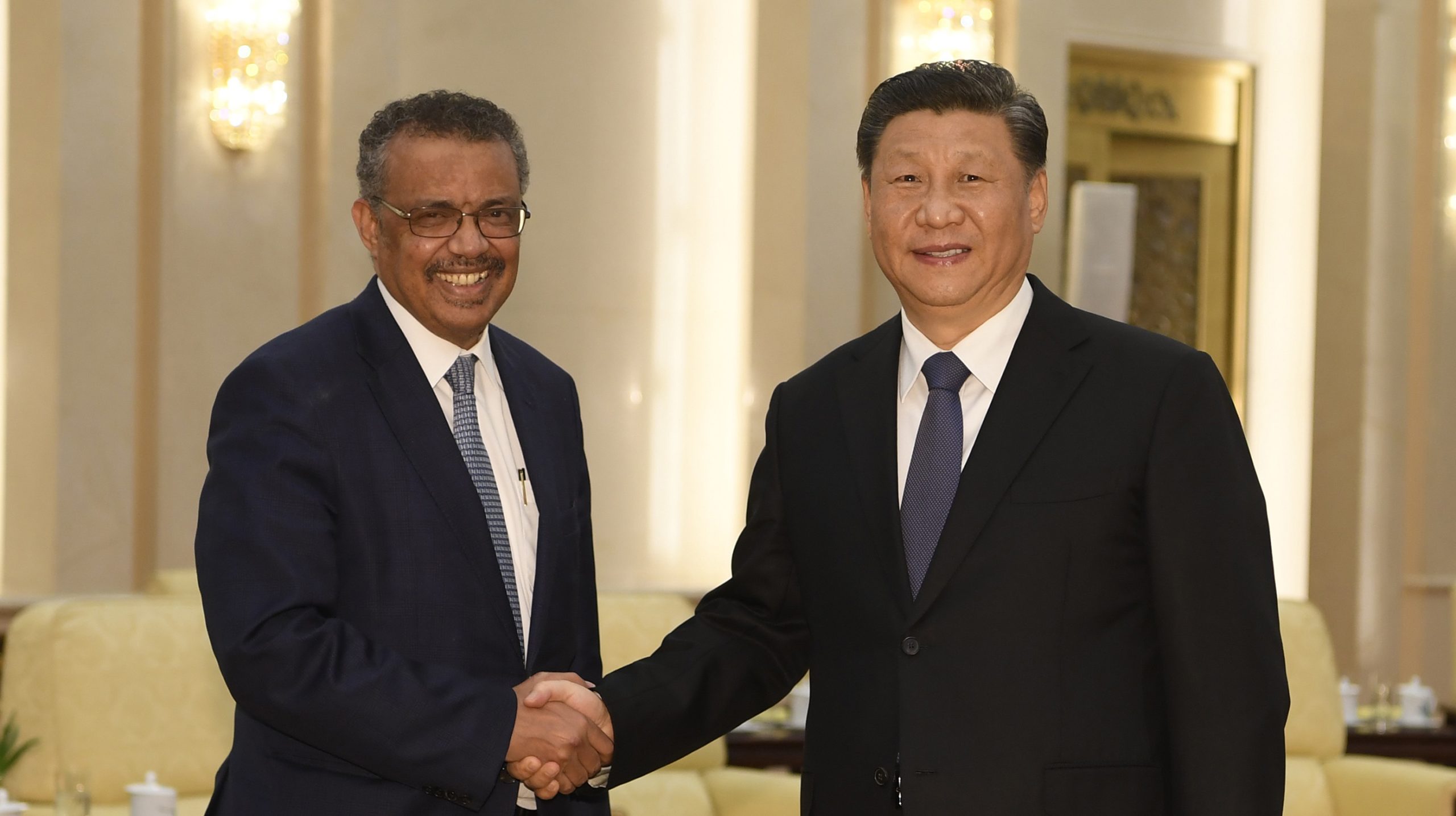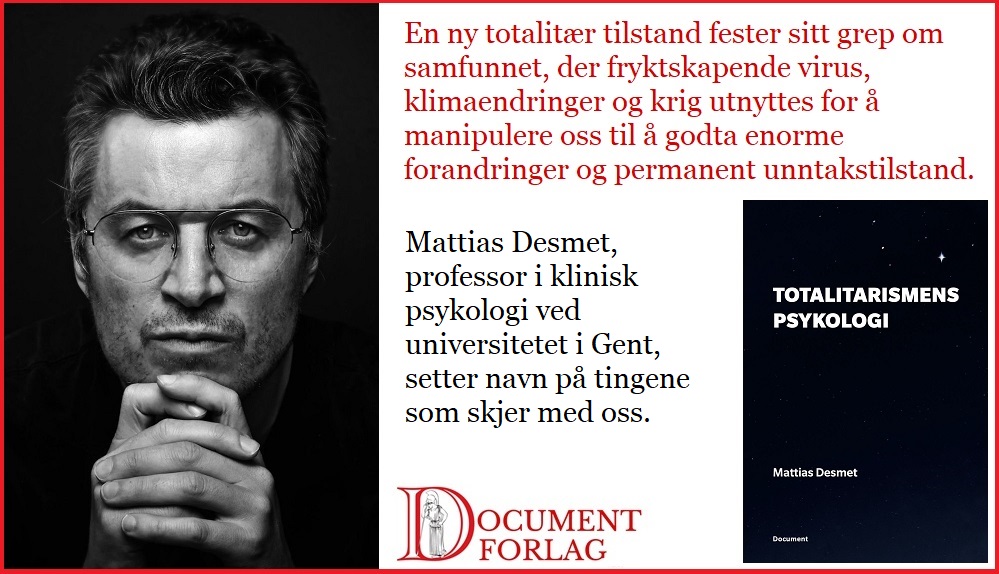WHO Chairman Tedros Adhanom Ghebreyesus greets Chinese President Xi Jinping before a meeting at the Great Hall of the People in Beijing on January 28, 2020. Photo: Naohiko Hatta/Pool via AP/NTB.
British government officials fear a planned global pandemic agreement will give the World Health Organization (WHO) powers to govern Britain in future pandemic outbreaks.
British lawmakers are also skeptical about the possibility that the WHO can decide on matters such as border controls, vaccine passports, lockdowns, quarantine rules, budgets, information control and intellectual property, reports Telegraph.
Member states are required to follow the agency’s instructions when responding to the pandemic, including by introducing vaccine passports, closing borders and quarantine measures, under its draft regulatory update.
A new “pandemic agreement” under discussion would also force the UK to spend five per cent of its health budget preparing for another virus outbreak.
Ministers are concerned about plans to increase the WHO’s powers that would allow its regulatory body to require countries to hand over vaccine prescriptions, regardless of intellectual property rights, and to fight misinformation.
A group of conservative MPs have written to the government in which they warn against WHO becoming an international authority, and ask that such attempts be avoided.
In their letter, which was seen by The Telegraph, they urged the Foreign Office to block powers that “appear to materially interfere with Britain’s ability to make its own rules and control its own budget”.
In the government apparatus, it is ensured that health policy should not be outsourced:
Responding to concerns on Thursday, Andrew Mitchell, a Foreign Office minister, told The Telegraph he would block any legislation preventing Britain from setting its own health policy.
“The UK supports a pandemic agreement currently being negotiated by the national government, which could speed up the sharing of data on new pandemic threats so we can respond quickly in the event of a future pandemic,” he said.
“We are clear that we will never agree to anything that violates our principles of sovereignty or prevents the UK from taking decisive action against future pandemics.”
The pandemic agreement is expected to be finalized by May 2024, and in the process it has been proposed to make WHO suggestions binding on the parties to the agreement.
The agreement was first proposed by world leaders including Boris Johnson in 2021 during the pandemic and was originally designed to enhance alert systems, data sharing and vaccine production to “promote an all-of-government, all-of-society approach”.
But among the IHR’s 300 proposed amendments are changes to make WHO advice “binding” and introduce new requirements for countries to recognize it as the global authority on public health action.
This is particularly disturbing when you look at what the WHO has achieved in the past, commented one Conservative MP:
Six conservative MPs led by Esther McVey, a former Cabinet minister, have written to Mr Mitchell calling for a Commons vote on the draft agreement and bylaws before it is signed.
Ms McVey said: “There is, indeed, growing concern about the WHO Pandemic Agreement and International Health Regulations.
“The plan represents a significant shift for the organization, from a member-led advisory body to a coercive health authority.
“This is particularly worrying when you consider WHO’s poor track record of providing consistent, clear and scientifically sound advice for managing international disease outbreaks.”
The WHO earlier ruled out that the coronavirus could have leaked from the Wuhan lab, and WHO chief Tedros Adhanom Ghebreyesus praised China for its handling of the outbreak, even though China failed to tell the world that the virus was spreading among people as quickly as it could. they knew it – to increase the number of flights from Wuhan to Italy before it became widely known.
When Donald Trump pulled the US out of the WHO, he criticized the organization for being in a Chinese enclave.
Forlag Documents published Mattias Desmet. Buy the book here!

“Social media guru. Total beer fanatic. Tv ninja. Typical coffee fan. Amateur entrepreneur. Unapologetic food scholar.”









